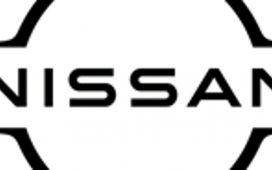New Energy Vehicle manufacturing BEV batteries in Nanjing, China.
The ongoing redefinition of the global electric-vehicle market is becoming the tale of two countries, with a continent in between.
While American consumers are demonstrating increasing resistance to all-electric vehicles and a growing preference for hybrid electrification instead, Chinese consumers have embraced full EVs more robustly than anywhere else in the world. Meanwhile, European consumers are more convinced about the value of EVs while perhaps not as excited as their Chinese counterparts about the mode of transportation.
This bifurcation has been underscored most recently in a new report by AlixPartners consultants about electric-vehicle consumer sentiment in international markets. The new study found some critical turns in the EV market since AlixPartners’ previous similar survey was fielded in 2021.
Most notably, the firm said, the global BEV market has divided into two distinct camps, with “very” or “moderately” likely BEV-purchase intention nearing all of the Chinese population even as near-term growth in sentiment for pure BEVs stagnates in the U.S. and to a lesser extent in Europe.
“China clearly occupies the pole position in the global EV race,” said Mark Wakefield, global co-leader of AlixPartners’ automotive and industrial practice, in a press release. “China now operates like a mature BEV market, with consumers seeing BEVs as a natural choice. This is due to several factors, including a well-developed BEV-charging ecosystem and high-tech, attractive vehicles that are software-defined. The U.S. and European markets, meanwhile, still have BEVs mostly satisfying early adopters.”
The responses in AlixPartners’ latest survey, of 9,000 consumers in eight markets that represent more than 80% of global BEV sales, showed the U.S. percentage of those who are “very” or “moderately” likely to purchase a BEV as flat compared with 2021, at 35%. This is a remarkable number given the combination of government financial incentives for BEV purchases, the introduction of dozens of new BEV models including those by nearly every manufacturer in the U.S. market, the tremendous marketing outlays to boost BEVs by automakers, tremendous support for the idea of EVs in the news and entertainment media, and a drumbeat of continual announcements of new BEV and battery factories that are being sprinkled around the country.
As many surveys and analyses have showed, American consumers remain largely hesitant about EVs in large part because of “range anxiety” concerns about BEV performance, chagrin at the still relatively undeveloped state of U.S. charging infrastructure, and higher prices for EVs than gasoline-powered equivalents.
Meanwhile, some of the same concerns have led to a leveling off of interest in BEVs in Europe, albeit at a higher level. The percentage of Europeans surveyed by AlixPartners who were “very” or “moderately” likely to buy a BEV increased by just one percentage point compared with 2021, albeit to a higher level than in the U.S., 43%.
In both Europe and the United States, consumers at the same time have become more interested in hybrid electric vehiclles, especially plug-ins. Of respondents in the U.S., who were “very” or “moderately” interested in purchasing a BEV, 83% are more interested in a plug-in hybrid as their next vehicle.












